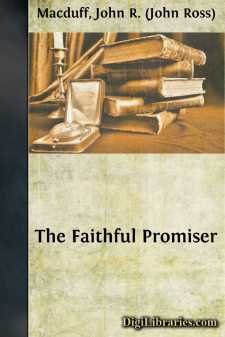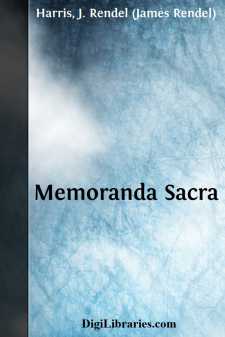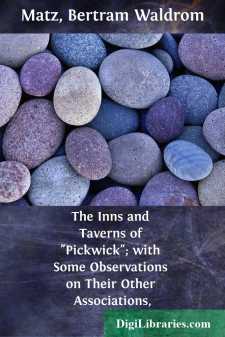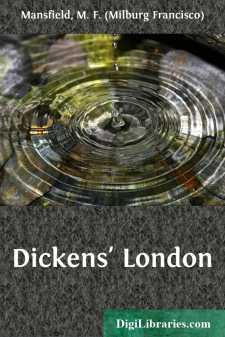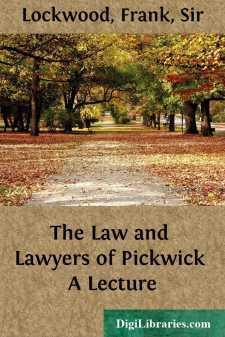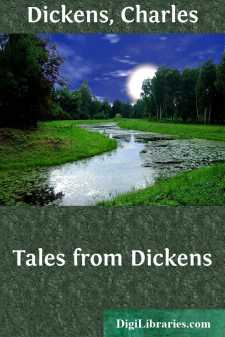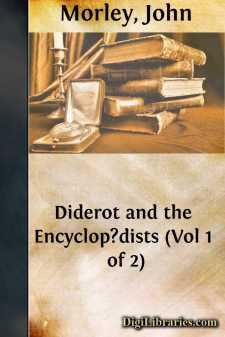Non-Classifiable
- Non-Classifiable 1768
Non-Classifiable Books
Sort by:
It has often been felt a delightful exercise by the child of God, to take, night by night, an individual promise and plead it at the mercy-seat. Often are our prayers pointless, from not following, in this respect, the example of the sweet Psalmist of Israel, the Royal Promise pleader, who delighted to direct his finger to some particular “word” of the Faithful Promiser, saying, “Remember Thy...
more...
GOD THE GOD OF THE LIVING I am afflicted and ready to die from my youth up. Forasmuch then as the children are partakers of flesh and blood, He also Himself likewise took part of the same; that through death He might destroy him that had the power of death, that is, the devil; and deliver them who through fear of death were all their lifetime subject to bondage. Who is like unto Thee, O most mighty...
more...
CHAPTER I "PICKWICK" AND THE COACHING AGE Dickens, like all great authors, had a tendency to underestimate the value of his most popular book. At any rate, it is certainly on record that he thought considerably more of some of his other works than he did of the immortal Pickwick. But The Pickwick Papers has maintained its place through generations, and retains it to-day, as the most popular...
more...
This book is for the lover of Dickens and of London, alike. The former without the memory of the latter would indeed be wanting, and likewise the reverse would be the case. London, its life and its stones, has ever been immortalized by authors and artists, but more than all else, the city has been a part of the very life and inspiration of those who have limned its virtues, its joys, and its...
more...
by:
Frank Lockwood
Sir Charles Russell: I stand but for a single instant between you and our friend, Mr. Lockwood. He needs no introduction here; but I am sure I may in your name bid him a hearty welcome. Mr. Frank Lockwood: Mr. Attorney-General, Ladies and Gentlemen—It is some little time ago that I was first asked whether I was prepared to deliver a lecture. Now I am bound at the outset to confess to you that...
more...
by:
Charles Dickens
CHARLES DICKENS Charles John Huffham Dickens, the master story-teller, was born in Landport, England, February 7, 1812. His father was a clerk in one of the offices of the Navy, and he was one of eight children. When he was four years old, his father moved to the town of Chatham, near the old city of Rochester. Round about are chalk hills, green lanes, forests and marshes, and amid such scenes the...
more...
CHAPTER I. IPSWICH I.—The Great White Horse This ancient Inn is associated with some pleasant and diverting Pickwickian memories. We think of the adventure with “the lady in the yellow curl papers” and the double-bedded room, just as we would recall some “side splitting” farce in which Buckstone or Toole once made our jaws ache. As all the world knows, the “Great White Horse” is...
more...
PICKWICKIAN MANNERS AND CUSTOMS. No English book has so materially increased the general gaiety of the country, or inspired the feeling of comedy to such a degree as, “The Pickwick Club.” It is now some “sixty years since” this book was published, and it is still heartily appreciated. What English novel or story is there which is made the subject of notes and commentaries on the most...
more...
by:
John Morley
CHAPTER I.OTHER DIALOGUES. We may now pass to performances that are nearer to the accepted surface of things. A short but charming example of Diderot’s taste for putting questions of morals in an interesting way, is found in the Conversation of a Father with his Children (published in 1773). This little dialogue is perfect in the simple realism of its form. Its subject is the peril of setting one’s...
more...
by:
John Morley
There was a moment in the last century when the Gallican church hoped for a return of internal union and prosperity. This brief era of hope coincided almost exactly with the middle of the century. Voltaire was in exile at Berlin. The author of the Persian Letters and the Spirit of Laws was old and near his end. Rousseau was copying music in a garret. The Encyclopædia was looked for, but only as a...
more...


